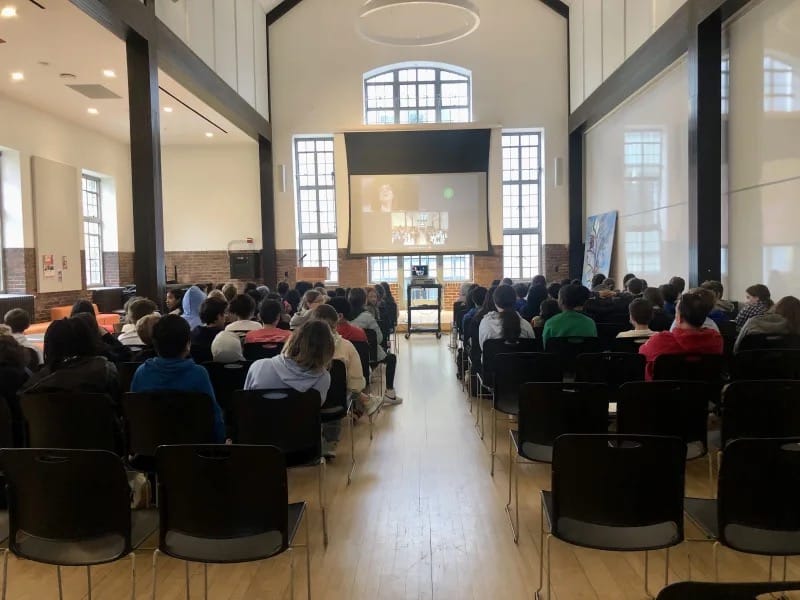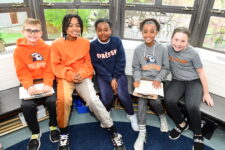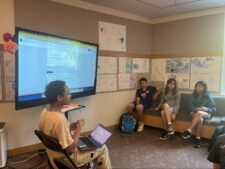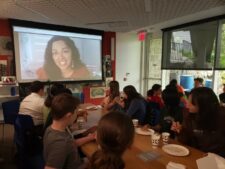On a Friday in early May, Fieldston Middle enjoyed special programming organized by the Ethical Culture Fieldston School Diversity, Equity, and Inclusion (DEI) Team. Equity in Action Day — formerly known as Diversity Day — is “part of the DEI team’s mission-driven work that is ongoing, foundational, and intersectional,” says DEI Coordinator Dr. Mica McGriggs.
This year’s Equity in Action Day keynote speaker was Kate Kelley, Esq., a human rights attorney and women’s rights activist who serves as counsel to the U.S. House of Representatives. Kelley recently released a book titled, “Ordinary Equality: The Fearless Women and Queer People Who Shaped the U.S. Constitution and the Equal Rights Amendment.” Kelley’s book — which specifically targets middle and high school readers — discusses the fragility of gender and sex protections of all minoritized genders in the constitution as it currently stands, and the important people who are working to institute change.
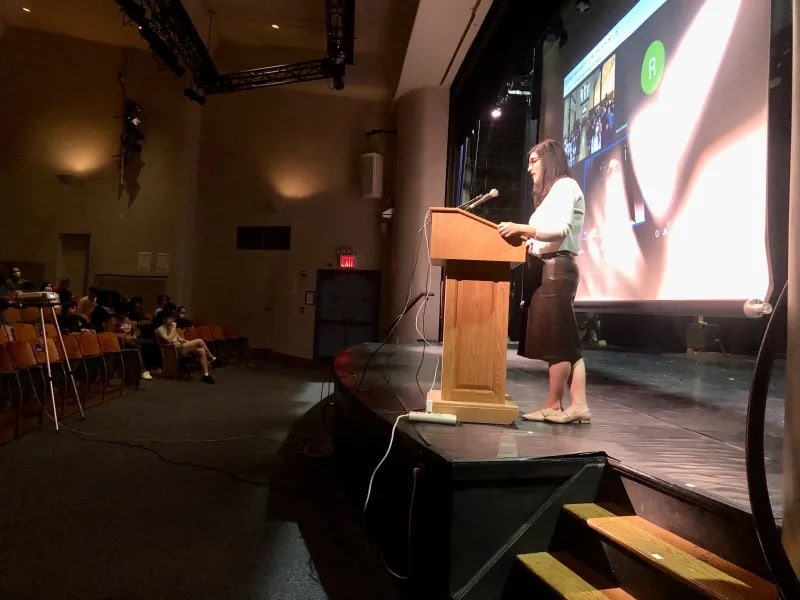
“Our programming on that day was powerful because it gave students a chance to learn about historical change-makers, different people who have been working over generations to get a Constitutional Amendment ratified, and how persistent they have needed to be in support of these efforts,” says Jon Alschuler, Principal of Fieldston Middle.
After Kelley’s speech, students split into gender identity-based affinity groups to reflect on what they learned. Students had the option of joining the male, female, nonbinary and transgender, or mixed-gender affinity groups. These affinity groups provide students with a safe space to talk through their reactions with peers who were looking at the presentation from at least one common lens.
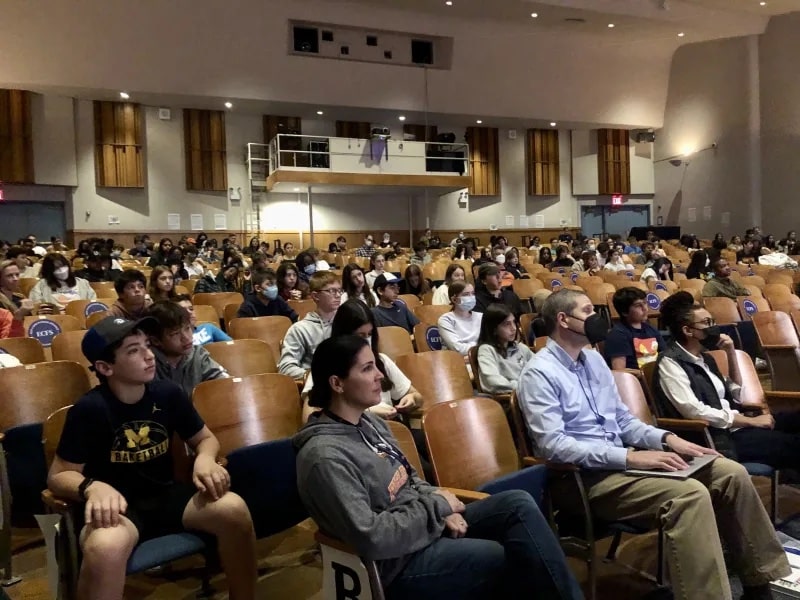
“The heart of everything we do is community. These conversations need to happen in community, so we do our best to provide spaces where students feel comfortable to honestly share with one another,” explains Dr. McGriggs.
While in their affinity groups, students reflected on Kelley’s speech and then were guided through several discussion questions. Students drew connections between the Equal Rights Amendment (ERA) and other relevant social/political issues, and they discussed how the ERA or other issues regarding gender-based marginalization may impact their own gender identities.
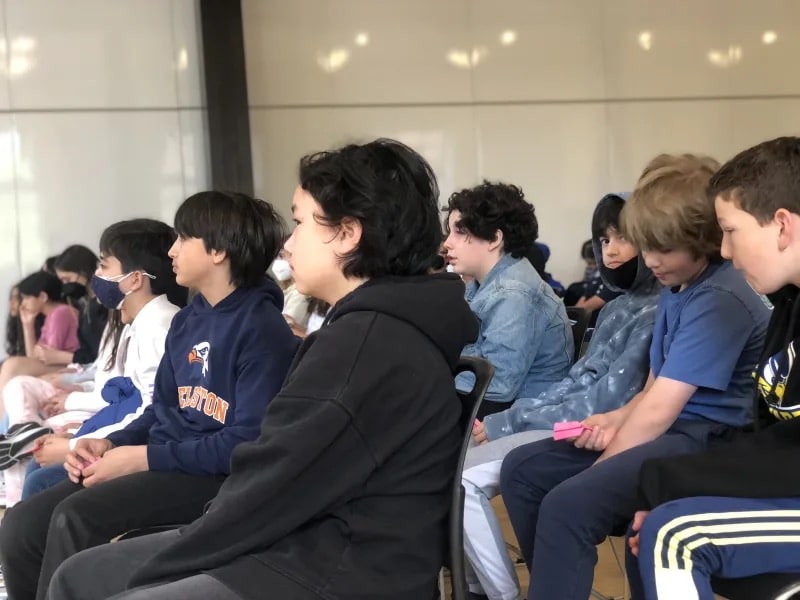
Students raised questions and talked through a range of issues, from Title IX and how it is different from an amendment to the constitution, to recent news regarding Roe v. Wade and Florida’s “Don’t Say Gay Bill,” and — using the information they’d learned from Kelley’s presentation — discussed the future of the ERA.
Following time in affinity spaces, students participated in workshops that taught them how change is made within the United States political system, and how factors like campaign finance, rhetoric, and systems of government impact how change happens.
“Our idea was to allow students to go into greater depth with particular facets of the political structure, and give them a better idea of how change can be made within the structure,” says Dr. McGriggs.
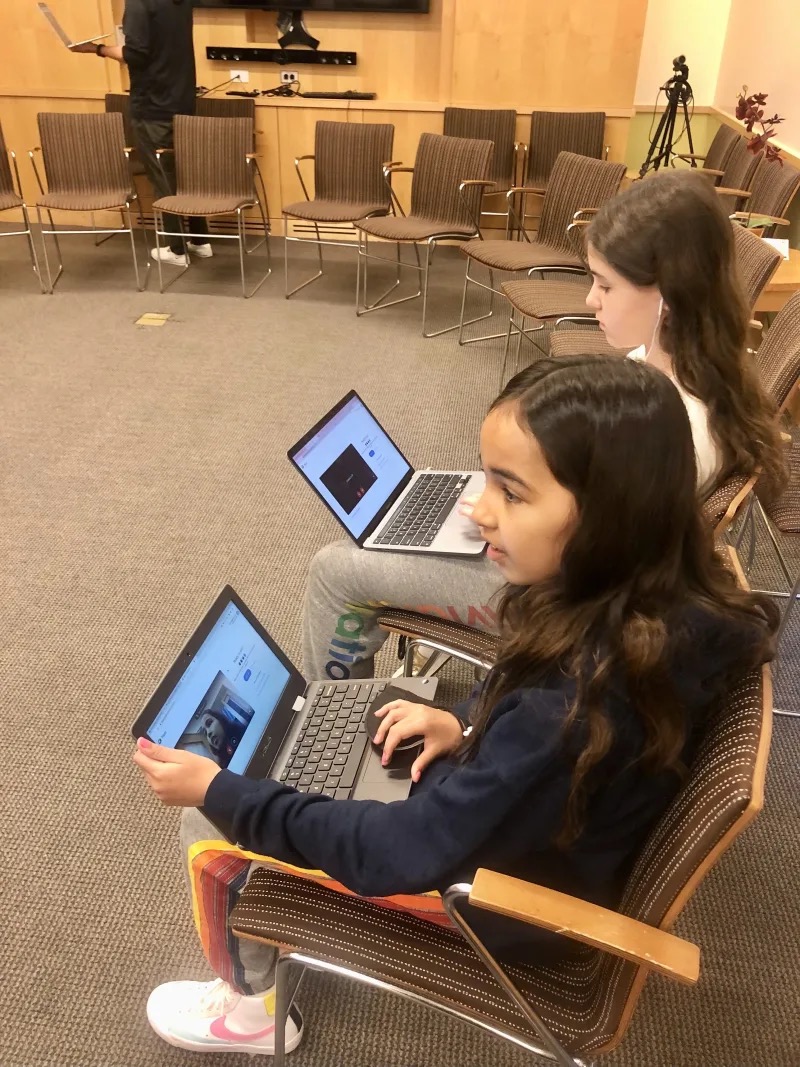
While planning the Equity in Action Day, the DEI team wanted to provide an experience that felt relevant for students. “The DEI team specializes in what we refer to as both ‘planned and responsive programming,’” explains Director of Community and Inclusion Russell Marsh. Equity in Action Day — an example of “planned programming” — often requires a certain level of “responsive programming,” to best support teachers in facilitating difficult conversations. “We often huddle together to anticipate possible questions the students may have based on what is going on in our world, and we share ways that teachers can best support those students,” says Marsh.
Alschuler found the programming to be a huge success and looks forward to future Equity in Action Days for Fieldston Middle. “Our students seemed very engaged with the speaker, asked great questions of her, and then they were active participants in their workshops afterward,” he says.
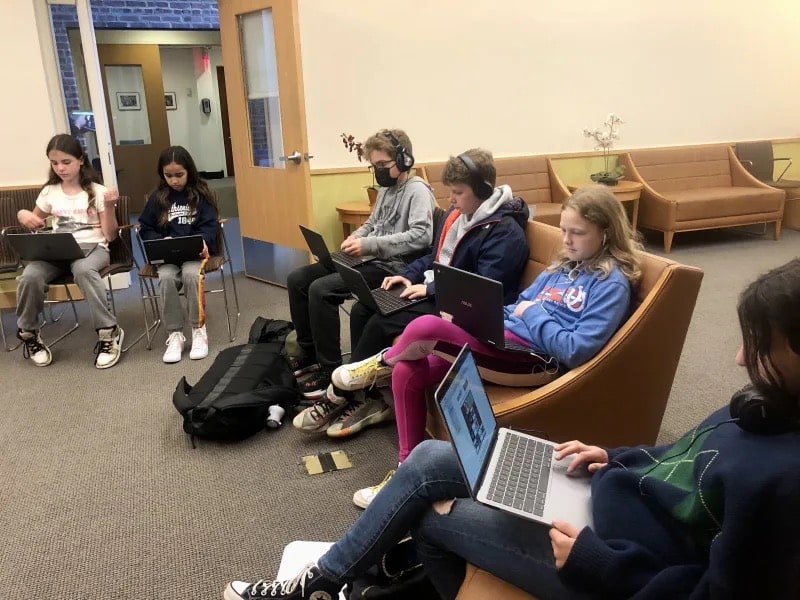
Equity in Action Day provided Fieldston Middle students with the opportunity to think critically about systems of government in the United States, and the ways they can get involved to enact change. “They know they aren’t old enough to vote, so we present different ways they can get involved,” explains Dr. McGriggs. “For example, how do you start a letter-writing campaign? What does it look like to phone bank? And so on.” At the Ethical Culture Fieldston School, students are given opportunities to see themselves as part of a wider community, and ultimately as agents of change.
